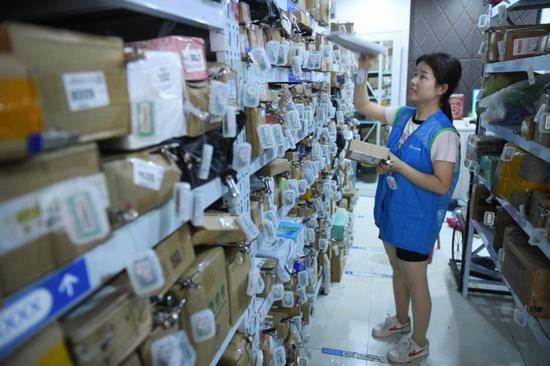
An employee sorts packages at a Cainiao logistics service station in Fuyang, Anhui province, in June. WANG BIAO/FOR CHINA DAILY
Cainiao Group, the logistics arm of Chinese technology heavyweight Alibaba Group Holding Ltd, is boosting its overseas logistics network and accelerating expansion abroad to meet the growing demand for faster and more reliable delivery services globally.
Wan Lin, CEO of Cainiao, said the company will start developing its second batch of global e-commerce logistics hubs, or e-Hubs, with the aim of creating a shared infrastructure that will support all e-commerce platforms, merchants and brands to sell both online and offline worldwide.
Wan made the remarks during the 2024 Cainiao Smart Global Logistics Summit, which opened on Tuesday in Hangzhou, Zhejiang province.
Cainiao's latest initiative is part of its global strategy to strengthen its end-to-end logistics capabilities and achieve its long-term goal of global deliveries within 72 hours.
He said the expansion is a vital step in enhancing its international express deliveries, overseas local delivery services and supply chain capacities.
Cainiao operates over 800,000 square meters of overseas warehouses and provides services in 18 countries and regions. It is speeding up its push overseas, offering local express delivery services in 10 countries and regions across the globe.
Furthermore, its latest L4 autonomous vehicles are officially on sale and set for large-scale deployment on public roads to facilitate parcel deliveries between delivery and pickup stations.
L4 autonomy means vehicles can drive themselves in most conditions without a human backup driver.
Cainiao has invested heavily in the research and development, and operation of unmanned delivery vehicles since 2016, aiming to boost last-mile delivery efficiency and cut operational costs for courier stations.
"In the next three to five years, we expect over 200,000 unmanned vehicles to be deployed in the logistics industry, which will further drive technological advancement and cost reduction across the sector," said Li Qiang, chief technology officer of Cainiao.
Li said autonomous vehicles have achieved commercialization and large-scale application in the logistics sector.
Cainiao, he added, will bolster the development and transformation of the logistics industry by leveraging its strengths in intelligent technologies covering artificial intelligence and autonomous driving.
"Alibaba is fully supporting Cainiao's global expansion to build a logistics network that meets future industrial and supply chain needs," said Joe Tsai, co-founder and chairman of Alibaba, and chairman of Cainiao Smart Logistics Network.
By integrating AI-driven innovations, Alibaba encourages Cainiao to build a logistics network that serves the open market, addresses diverse customer needs and acts as a shared infrastructure for global business partners, Tsai said.
Cainiao is enhancing cross-border logistics capabilities, pledging to deliver global parcels within five working days. The service has expanded to 14 countries, including key markets such as Europe, the United States and the Middle East.
Zhang Zhouping, a senior analyst on business-to-business and cross-border activities at the Internet Economy Institute, said Cainiao's plans regarding global logistics infrastructure align with the current development trend of cross-border e-commerce, and lay a solid foundation for Alibaba's expansion in international markets.
Highlighting the significance of delivery in cross-border online shopping, Zhang said establishing logistics infrastructure abroad, like overseas warehouses, and deploying unmanned delivery vehicles will help improve delivery efficiency, reduce the operating costs of online retailers and bolster the growth of cross-border e-commerce.
The adoption of autonomous delivery vehicles can potentially reallocate couriers' working time by releasing them from parcel delivery and giving them a chance to spend more time on customer service and maintenance of vehicles, said Lu Zhenwang, CEO of Shanghai-based Wanqing Consultancy.
Compared with traditional practices, unmanned deliveries feature lower delivery costs and greater safety records, as well as address some challenges, including rising labor costs and a shortage of couriers, Lu said.













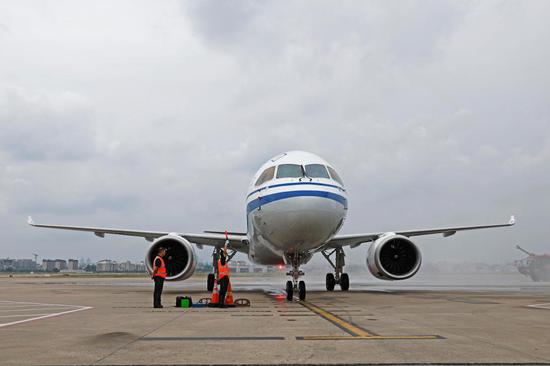


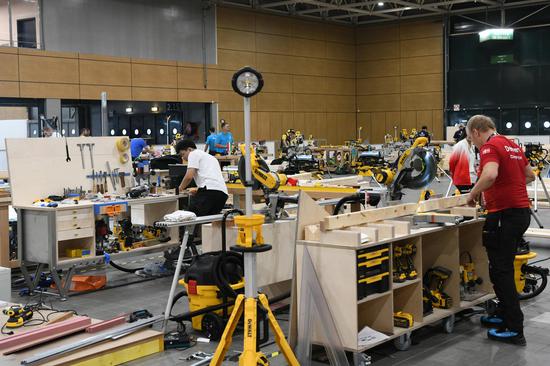


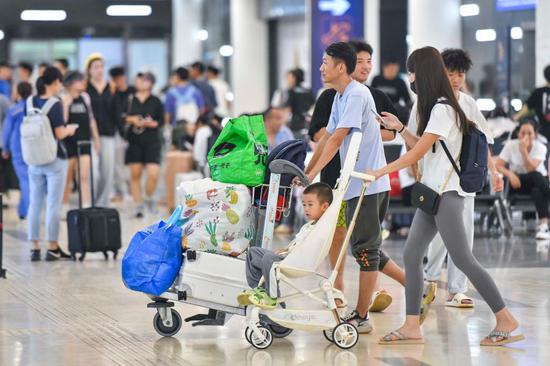


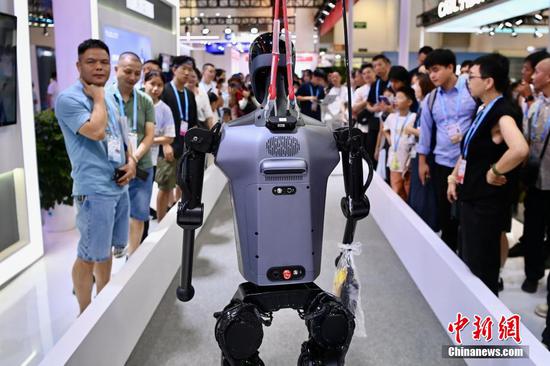
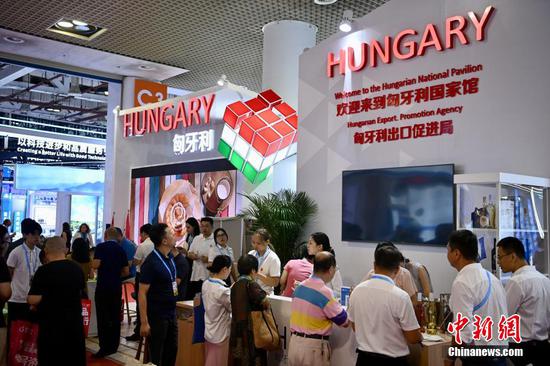






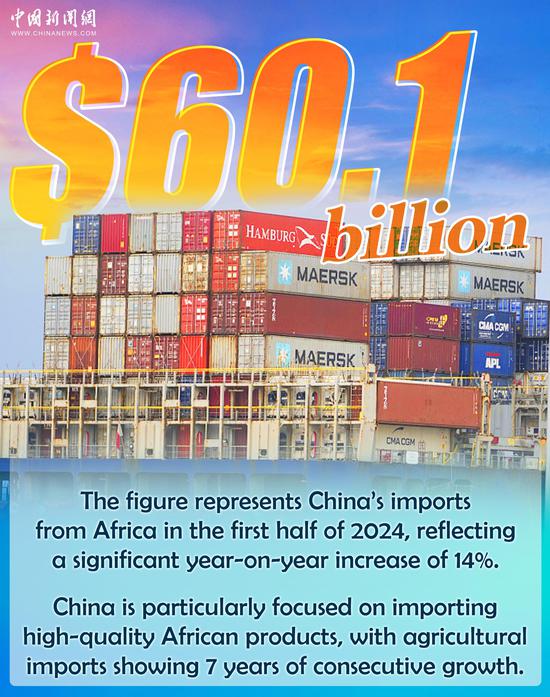






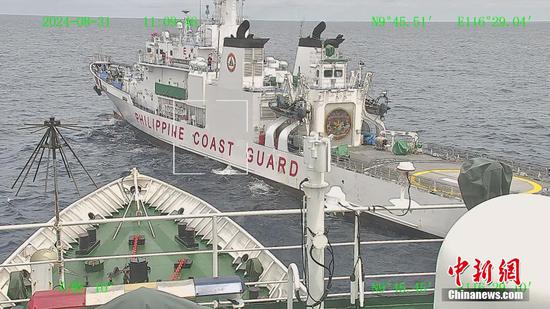
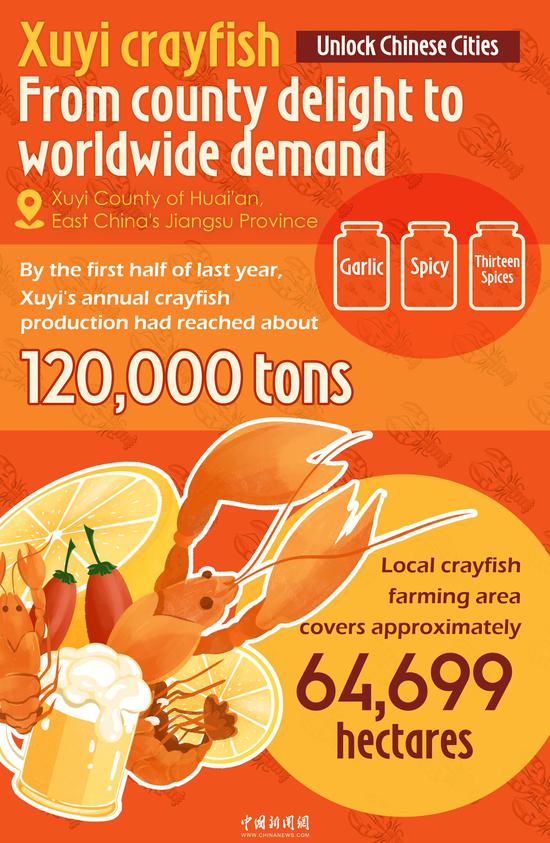




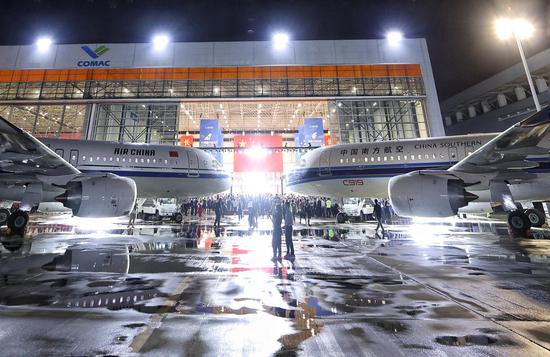






 京公網安備 11010202009201號
京公網安備 11010202009201號